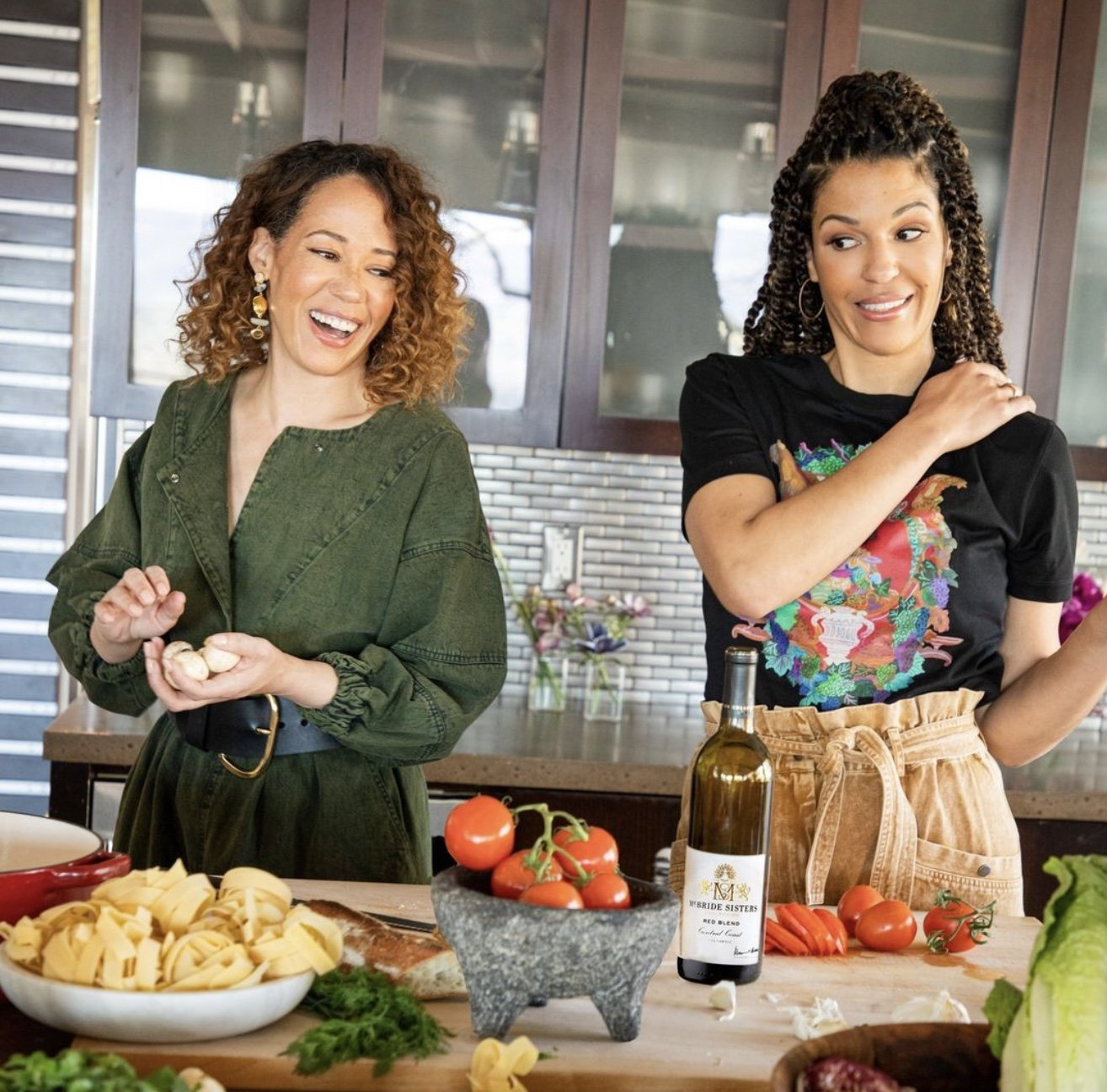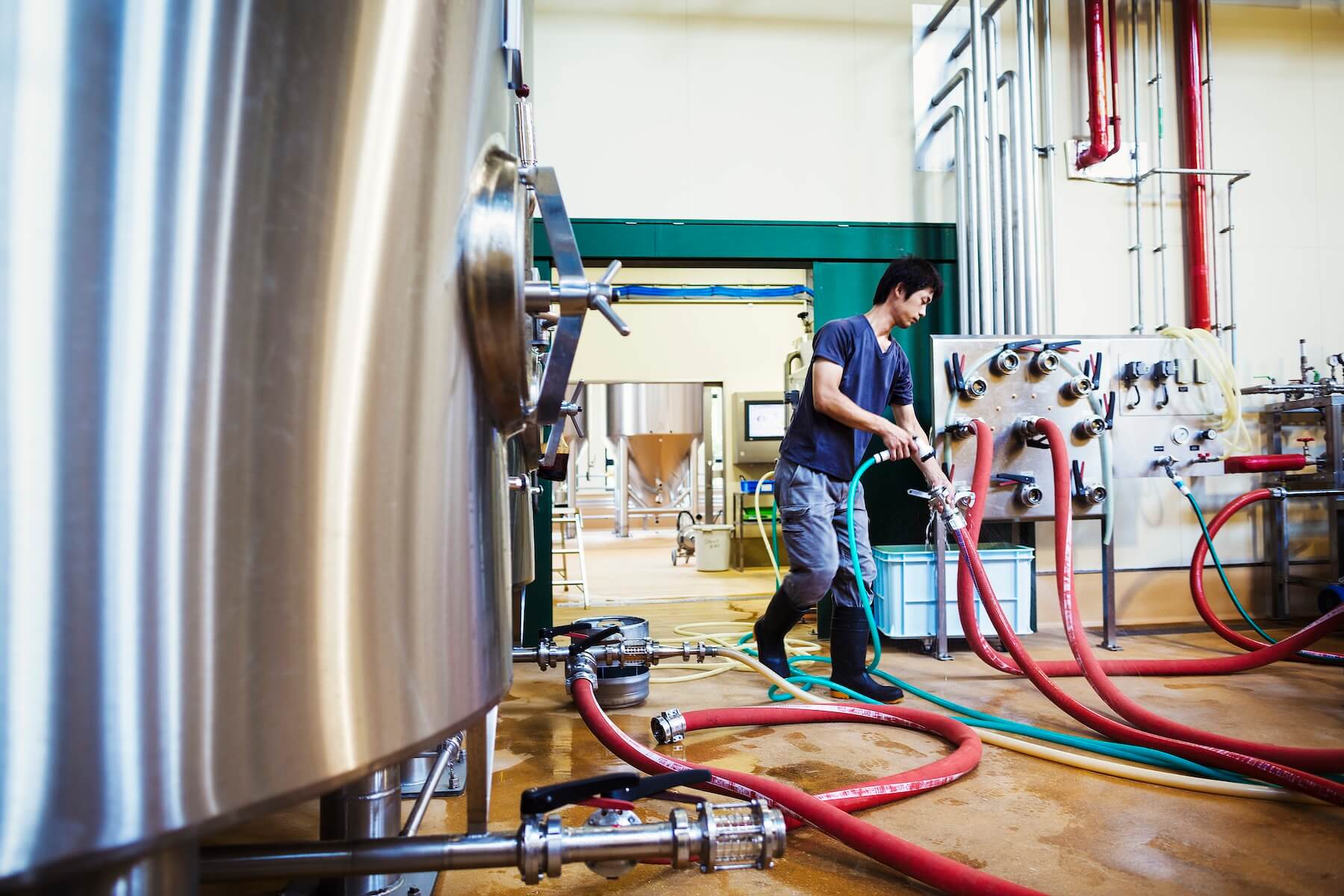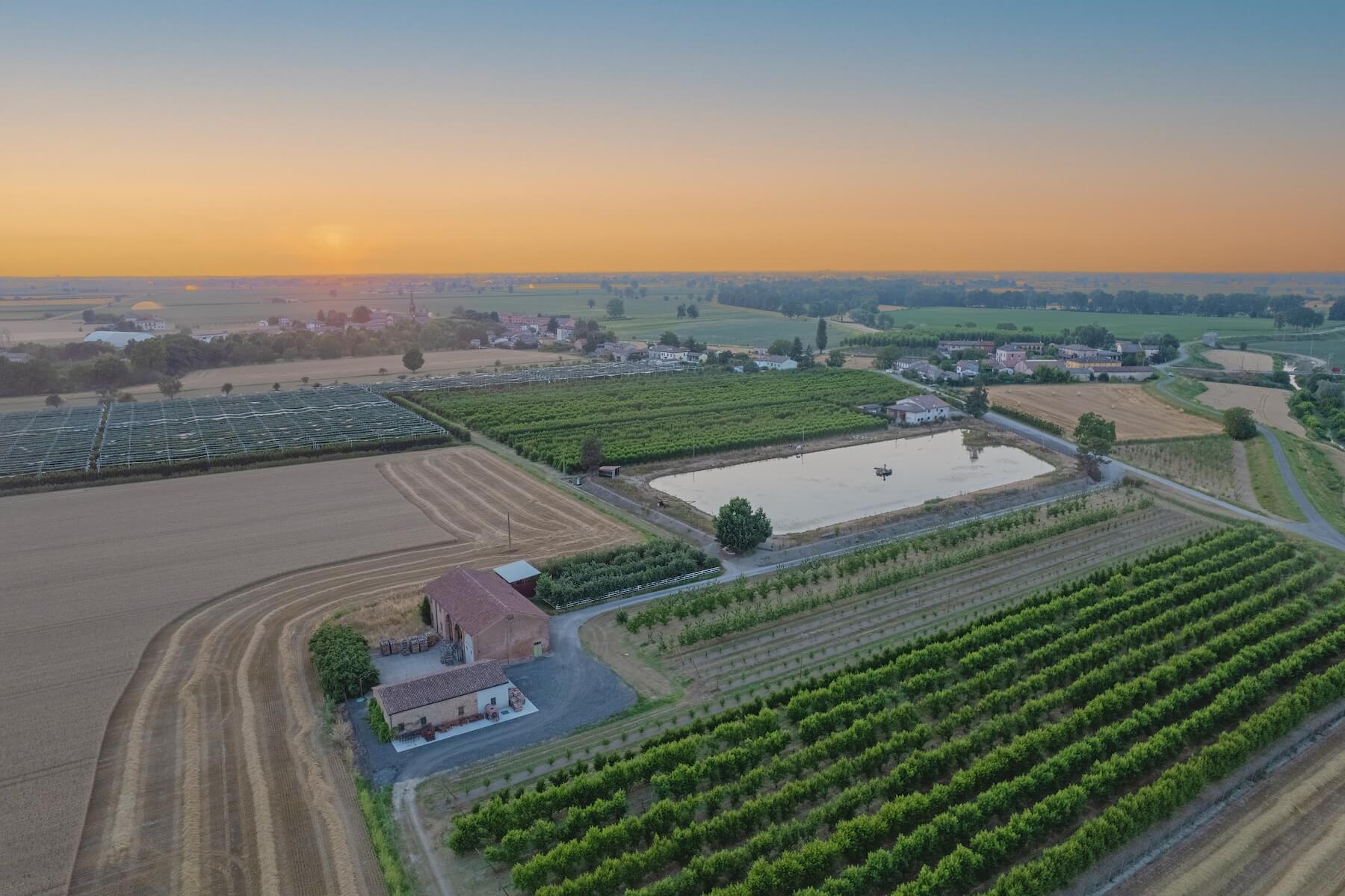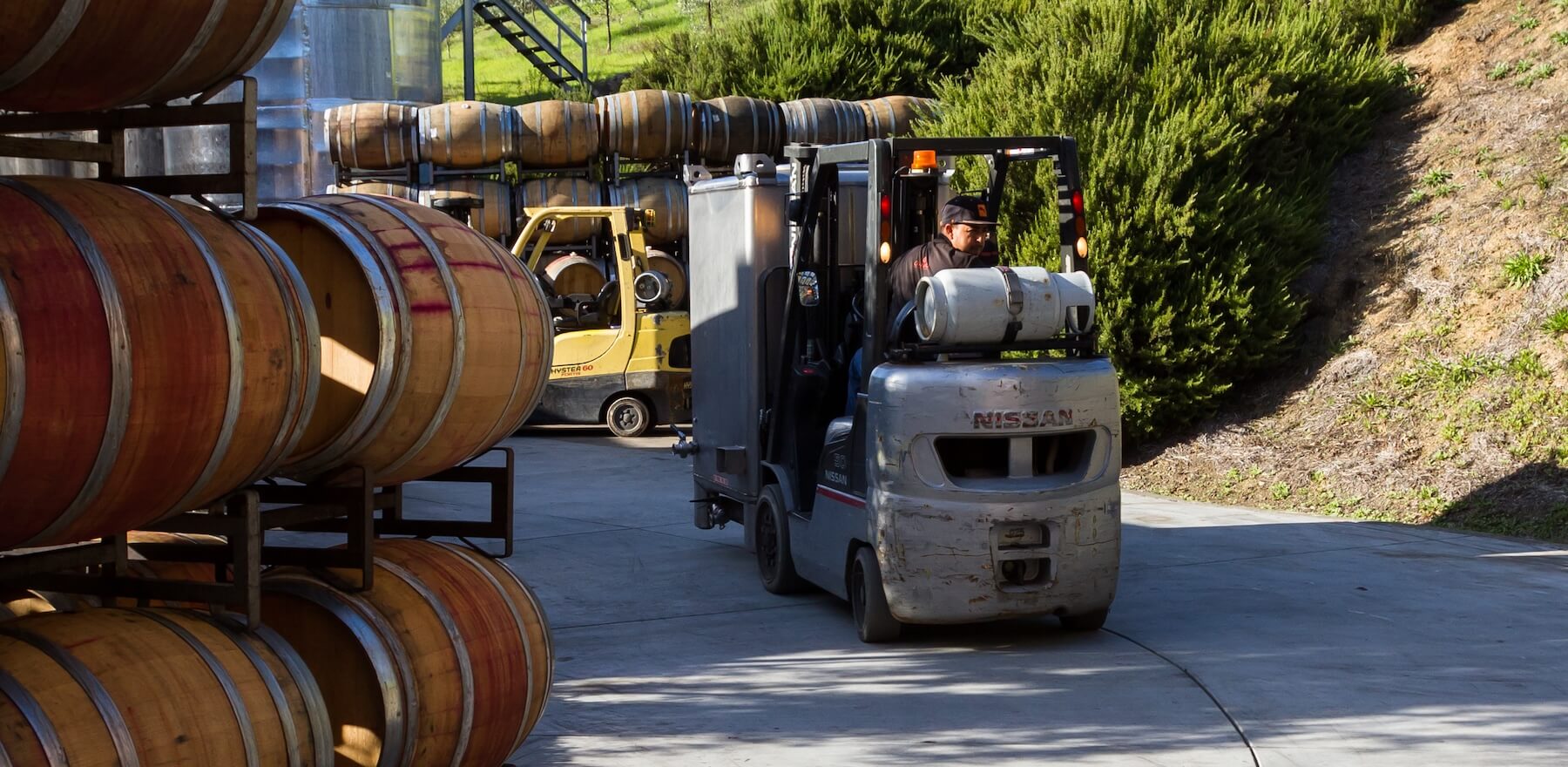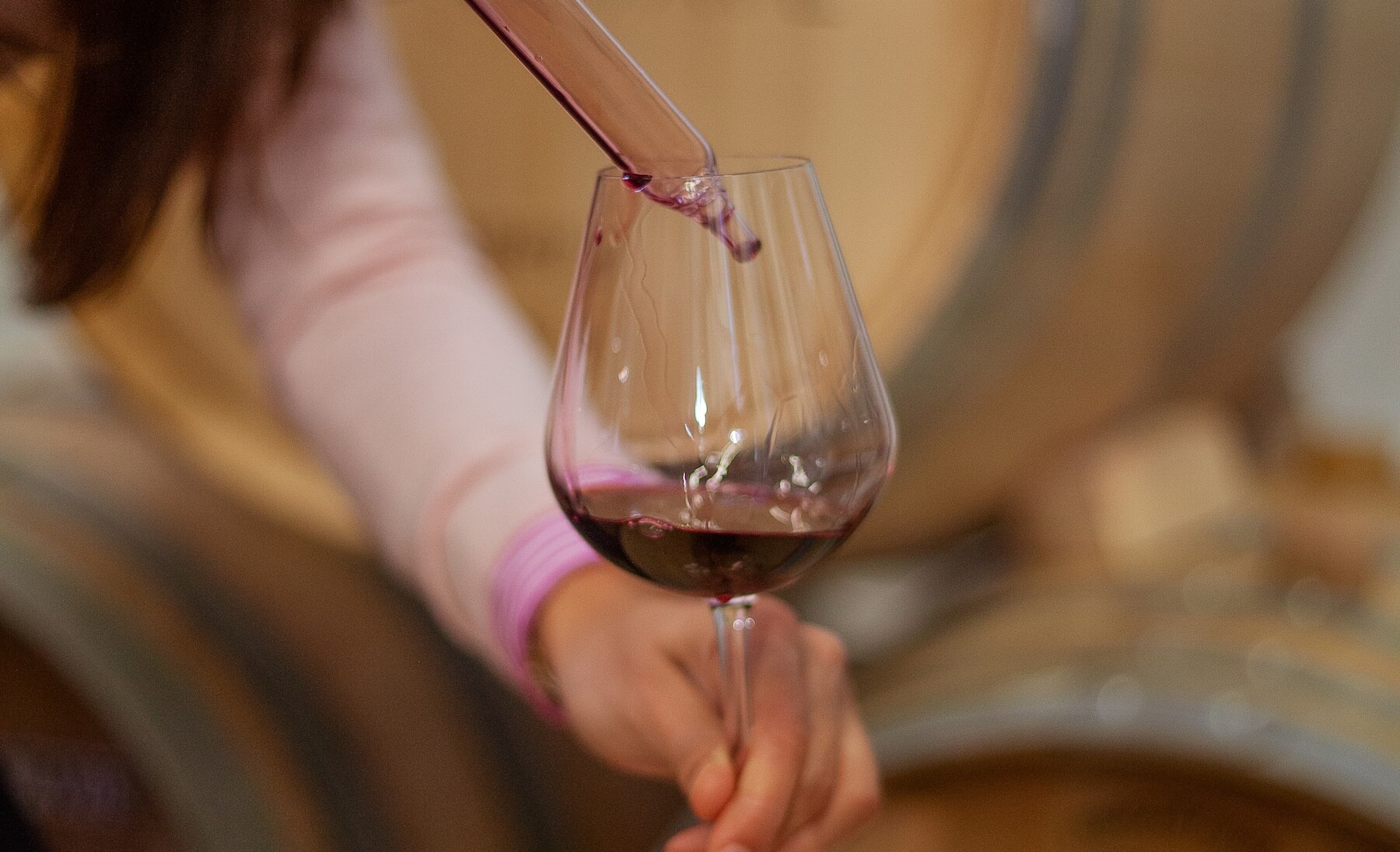A DEI State of the union
We talk wine and equity with Robin McBride of the McBride Sisters Wine Company.
The idea of winemaking evokes very specific imagery for people — rolling hills draped with grapevines, stout wooden barrels fragrant with aging wine, heaps of glistening grapes being prepared for crushing. But, try picturing the human side of this industry. If you close your eyes and imagine a winemaker or vintner in your head, what do they look like?
Chances are, you are envisioning a man. Chances are, that man is white.

According to The Terroir Noir: 2020 Study of Black Wine Entrepreneurs, a groundbreaking analysis by Dr. Monique Bell, Black-owned wineries account for less than 1% of all U.S. wineries, while Black people constitute more than 10% of American wine consumers.
August is National Black Business Month in the U.S. — a time to recognize and support Black-owned businesses and entrepreneurs. We took the opportunity to catch up with Robin McBride, co-founder of the McBride Sisters Wine Company and talk about the disparity between the makeup of the wine industry and the community it serves.
According to Robin, “The last published numbers we saw were that .06% of the industry is Black-owned. That’s not even a percentage point — that’s a rounding error.”
The McBride sisters, Robin and Andréa, have been in the wine business together since 2010, bringing all their brands together under the McBride Sisters Collection in 2017. At the end of 2020, the duo had sold over 35,000 cases of wine at retail – officially making them the largest Black-owned wine company by volume. The sisters, Robin (left) and Andréa (right), are captured here by photographer Michelle Magdalena (IG: @maddfoxmagdelana), in collaboration with Parker Grace Events (IG: @parkergraceevents).
In July 2020, the McBride sisters took to social media to share a list they had compiled of 86 Black vintners as part of Blackout Tuesday. The post went viral with a signal boost from several celebrities who engaged with the topic and shared. The list continues to grow and is reposted annually.
“It begs a bigger question — why didn’t we know? Why aren’t we connected more?” Robin wonders, “If there are 100s [of Black-owned wine businesses], then the 100s of us should be aware of each other and have a relationship and be able to network . . . it’s something we are still working on.”
The Good, The Bad and The Bottom Line
And what about the industry itself? It is (or should be) the goal of any responsible business to want to reflect the community it serves and to strive to make a space at the table for underrepresented groups.
But it isn’t just the magnanimous thing to do — more and more, companies with the biggest slices of the industry’s financial pie are realizing a tight relationship between prioritizing a diverse organization and strengthening their bottom line. Chief Marketing Officer Stephanie Gallo at E. & J. Gallo, one of the largest family-owned wine companies in the U.S., was quoted in SevenFiftyDaily with this to say about the future of the industry: “For our industry to grow, we have to reflect what America looks like today and what America will look like tomorrow. It is essential for our industry to adapt and evolve in order to be relevant to the next generation of alcohol beverage consumers. Diversity and inclusion encourage innovation and creativity, leading to a stronger company with better results.”
Robin makes the point that, “It’s always a great place to start by looking at your consumers — your business, your offerings should be curated to them but also your business and your staff should reflect your consumers and the community that you’re in.”
The past five years have seen many companies and organizations making public, year-over-year commitments to diversity, equity and inclusion (DEI) efforts. In 2020, Napa Valley Vintners announced an investment of upwards of a million dollars to begin new scholarship programs and mentorship initiatives in partnership with UNCF (the United Negro College Fund) in an effort to increase diversity and inclusivity within the wine industry.
We asked Robin whether she feels these kinds of efforts, both from nonprofits and within wine companies, are still going strong and affecting real change.
“I feel like I’m happy to say that the industry has changed a lot for the better in terms of gender, race, equity . . . but it’s still not where it should be and it is still behind business-at-large and the rest of the world. So, we have to keep pushing.”
Interestingly, the COVID pandemic seems to have had a positive effect in terms of DEI in the industry, in that the events have forced retailers to listen to their customers more than ever. The pay-to-play tradition within the wine industry has begun to crumble as consumers are realizing the power that their voice truly has. So, along with that realization comes the idea that the industry should reflect the community that it serves.

A More Equitable Future for Wine
So, what’s next? What do companies need to do to move toward a more equitable future? We asked Robin McBride what advice she would give any company engaging in DEI work – what does a company need to do to get started?
She explained, “Two of the things that nobody wants to do: one, do the work to understand your own biases and how to drop them. Which is continual work, because we’re humans, we’re tribal, it’s how our brains work. Through our own lens we assimilate data and make assumptions and, back in the cave days it helped us survive. Now it just helps us be mean to other people, mostly. ”
Robin went on to explain, “And the other thing is to do the work to get to know your customer, your consumer, your cohort, whoever it is that you are working with and understand those groups and understand their backgrounds and their needs, to serve them better. Both of those things, people don’t want to do because it’s hard and uncomfortable and weird. But it is a necessity.”
Many companies are bringing in DEI consultancies to help them meet their diversity and inclusivity goals. These experts often advise addressing issues rooted in the corporate culture. Dr. Akilah Cadet, founder of Change Cadet (a change management and organizational development consultancy which has partnered with the Diversity in Wine Forum to create programs and training around DEI initiatives in the wine industry), talks about these areas of importance in her training programs.
According to Dr. Cadet, rethinking a company’s approach to the hiring process is a critical piece. Traditionally, the goal is to find the best candidate with a focus on credentials, education and certifications that make that person qualified to do the job. Dr. Cadet and other DEI consultants suggest that the goal should shift to address a need or growth area within the organization rather than ticking boxes — redefining what “qualified” means, based on that need.
Consultants also suggest that looking at a candidate’s life experiences and background may reveal more value in terms of insights and perspectives that person will bring to the table that go far beyond a checklist of credentials; staying focused on certifications and degrees may hold you back from accomplishing the DEI initiatives you have committed to.
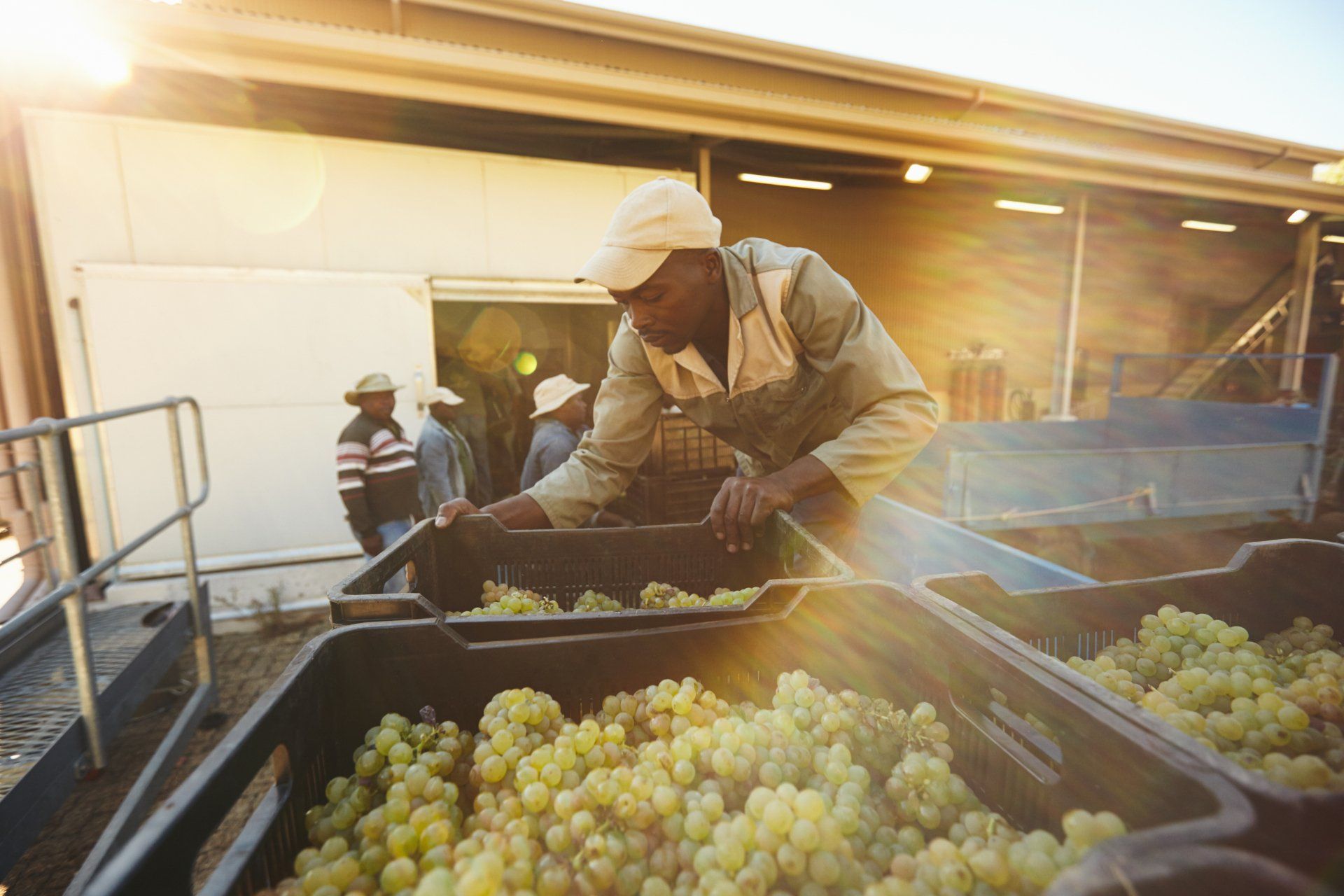
Education + Retention
DEI experts aren’t just talking about scholarships and programs geared toward helping more diverse cohorts of students to obtain traditional degrees applicable to the industry. These are great but don’t tend to address the industry’s biases. Relying on this angle of addressing the issue may overlook the rich value of investing in on-the-job training and community learning, both in terms of creating opportunities for a broader range of talent and retaining great workers by giving them a pathway to even greater success.
Consultants also suggest that companies can help create equity for talent entering the field by encouraging long-term career development and personal investment in the industry.
Company Practices
DEI experts suggest that an audit of existing practices, internal lexicon, consumer understanding and internal attitude be conducted first and foremost. Investing in the aid of a consultant or advisor who can guide you and help your company take appropriate steps may ease the process.
Once steps are laid out and goals are set, DEI consultants recommend the following can help set you up for success:
- Commitment to ongoing training for leadership and other employees: There is no one-and-done approach here. Establishing an itinerary to continue to do the work and holding your organization accountable to meeting measurable goals will go a long way toward “walking the walk.”
- A change in perspective: Diversify your personal media consumption to reflect that of your customers and encourage others around you to do the same. Getting outside your own echo chamber can amplify your understanding of your customers and community. It also helps shine a light on personal unconscious biases so you can address them.
- Diversity committees: Forming an internal committee that is responsible for regular auditing/surveying of the success of your initiatives, brainstorming new efforts and offering candid feedback can be invaluable. Just make sure that your internal committee is made up of more than just your more diverse staff; it should reflect the ideal makeup of your organization as a whole.
- Community advisory groups: Reach out and get feedback from the community you serve. These groups are like a House of Representatives from your consumer base and their voices are powerful. They can help you see what your efforts look like from an outside perspective.
To read more about DEI principles, check out some of the resources below:
- Change Cadet
- Maryam + Company
- Association of African American Vintners
- The Gerard Bassett Foundation
- Vinclusive
- The Diversity in Wine Leadership Forum
Also, be sure to check out the McBride Sisters Collection wines, available directly from their website or locate a retailer near you.
